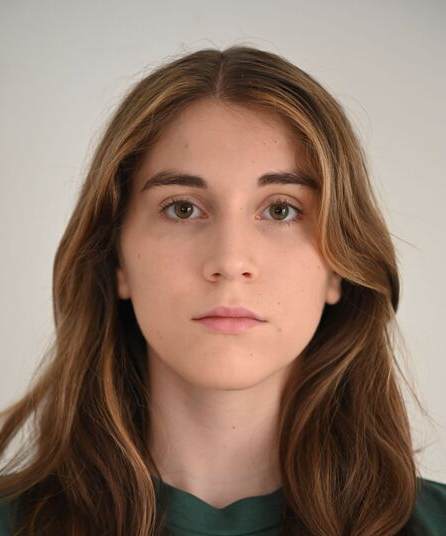Manuel Wimmer

Privatdoz. Mag.rer.soc.oec. Dr.rer.soc.oec.
Manuel Wimmer
- Email: manuel.wimmer@tuwien.ac.at
- Phone: +43-1-58801-18829
- Office: HG0219 (1040 Wien, Favoritenstrasse 11)
- About: UML, Object-oriented Modeling, Domain-specific Modeling, Metamodeling, Model Transformation, Software Engineering, Web Engineering, Model Engineering, Industrial Engineering, Automation Engineering, Multi-disciplinary Engineering
- Orcid:
- Keywords: Model Driven Engineering, Web Engineering, Model Transformation
- Roles: Affiliated
Publications
Moderne Softwareentwicklungsumgebungen : Evaluierung C++/C#-basierter Ansätze
 Florian Skopik
Florian Skopik Manuel Wimmer
Manuel Wimmer
Skopik, F. (2007). Moderne Softwareentwicklungsumgebungen : Evaluierung C++/C#-basierter Ansätze [Master Thesis, Technische Universität Wien]. reposiTUm. http://hdl.handle.net/20.500.12708/178617
A Survey on Aspect-Oriented Modeling Approaches
 Andrea Schauerhuber
Andrea Schauerhuber Wieland Schwinger
Wieland Schwinger Elisabeth Kapsammer
Elisabeth Kapsammer Werner Retschitzegger
Werner Retschitzegger Manuel Wimmer
Manuel WimmerKeywords:
Astract: Aspect-orientation provides a new way of modularization
by clearly separating crosscutting concerns from non-crosscutting ones. While aspect-orientation originally has emerged at the programming level, it now stretches also over other development phases. There are, for example, already several proposals to Aspect-Oriented Modeling (AOM), most of them pursuing distinguished goals, providing different concepts as well as notations, and showing various levels of maturity. Consequently, there is an urgent need for both, academia and practice, to provide an in-depth survey, clearly identifying commonalities and differences between current AOM approaches. Existing surveys in this area focus more on comprehensibility with respect to development phases or evaluated approaches rather than on comparability at a fine-grained level.
This paper tries to fill this gap. As a prerequisite for an in-depth evaluation, a conceptual reference model is presented, capturing the basic concepts of AOM and their interrelationships in terms of a UML class diagram. Based on this conceptual reference model, an evaluation framework has been designed by deriving a detailed and well-defined catalog of evaluation criteria. The actual evaluation by means of this criteria catalog and by employing a running example is done on the basis of a carefully selected set of eight AOM approaches, each of them having already reached a certain level of maturity. This per approach evaluation is complemented with an extensive report on lessons learned, summarizing the approaches´ strengths and shortcomings.
Schauerhuber, A., Schwinger, W., Kapsammer, E., Retschitzegger, W., Wimmer, M., & Kappel, G. (2007). A Survey on Aspect-Oriented Modeling Approaches. http://hdl.handle.net/20.500.12708/33099
A Survey on Web Modeling Approaches for Ubiquitous Web Applications
 Andrea Schauerhuber
Andrea Schauerhuber Wieland Schwinger
Wieland Schwinger Werner Retschitzegger
Werner Retschitzegger Manuel Wimmer
Manuel Wimmer
Schauerhuber, A., Schwinger, W., Retschitzegger, W., Wimmer, M., & Kappel, G. (2007). A Survey on Web Modeling Approaches for Ubiquitous Web Applications. http://hdl.handle.net/20.500.12708/33100
Matching Metamodels with Semantic Systems - An Experience Report
 Horst Kargl
Horst Kargl Gerhard Kramler
Gerhard Kramler Andrea Schauerhuber
Andrea Schauerhuber Martina Seidl
Martina Seidl Michael Strommer
Michael Strommer Manuel Wimmer
Manuel WimmerKeywords:
Astract: Ontology and schema matching are well established techniques, which
have been applied in various integration scenarios, e.g., web service composition and
database integration. Consequently, matching tools enabling automatic matching of
various kinds of schemas with various matching techniques are available. In the field
of model-driven engineering, in contrast to schema and ontology integration, the in-
tegration of modeling languages relies on manual tasks such as writing model trans-
formation code, which is tedious and error-prone. Therefore, we propose the applica-
tion of ontology and schema matching techniques for automatically exploring seman-
tic correspondences between metamodels, which are currently the modeling language
definitions of choice. The main focus of this paper is on reporting preliminary results
and lessons learned by evaluating currently available ontology matching tools for their
metamodel matching potential.
Kappel, G., Kargl, H., Kramler, G., Schauerhuber, A., Seidl, M., Strommer, M., & Wimmer, M. (2007). Matching Metamodels with Semantic Systems - An Experience Report. In Datenbanksysteme in Business, Technologie und Web (BTW 2007), Workshop Proceedings (pp. 38–52). Verlag Mainz. http://hdl.handle.net/20.500.12708/51778
MDWEnet: A Practical Approach to Achieving Interoperability of Model-Driven Web Engineering Methods
 Antonio Vallecillo
Antonio Vallecillo Nora Koch
Nora Koch Cristina Cachero
Cristina Cachero Sara Comai
Sara Comai Piero Fraternali
Piero Fraternali Irene Garrigós
Irene Garrigós Jaime Goméz
Jaime Goméz Alexander Knapp
Alexander Knapp Maristella Matera
Maristella Matera Santiago Meliá
Santiago Meliá Nathalie Moreno
Nathalie Moreno Birgit Pröll
Birgit Pröll Thomas Reiter
Thomas Reiter Werner Retschitzegger
Werner Retschitzegger José E. Rivera
José E. Rivera Andrea Schauerhuber
Andrea Schauerhuber Wieland Schwinger
Wieland Schwinger Manuel Wimmer
Manuel Wimmer Gefei Zhang
Gefei ZhangKeywords:
Astract: Current model-driven Web Engineering approaches (such as OO-H,
UWE or WebML) provide a set of methods and supporting tools for a systematic design and development of Web applications. Each method addresses different concerns using separate models (content, navigation, presentation, business logic, etc.), and provide model compilers that produce most of the logic and Web pages of the application from these models. However, these proposals
also have some limitations, especially for exchanging models or representing further modeling concerns, such as architectural styles, technology independence, or distribution. A possible solution to these issues is provided by making model-driven Web Engineering proposals interoperate, being able to complement each other, and to exchange models between the different tools.
MDWEnet is a recent initiative started by a small group of researchers working on model-driven Web Engineering (MDWE). Its goal is to improve current practices and tools for the model-driven development of Web applications for better interoperability. The proposal is based on the strengths of current model-driven Web Engineering methods, and the existing experience and knowledge in the field. This paper presents the background, motivation, scope, and objectives of MDWEnet. Furthermore, it reports on the MDWEnet results and achievements so far, and its future plan of actions.
Vallecillo, A., Koch, N., Cachero, C., Comai, S., Fraternali, P., Garrigós, I., Goméz, J., Kappel, G., Knapp, A., Matera, M., Meliá, S., Moreno, N., Pröll, B., Reiter, T., Retschitzegger, W., Rivera, J. E., Schauerhuber, A., Schwinger, W., Wimmer, M., & Zhang, G. (2007). MDWEnet: A Practical Approach to Achieving Interoperability of Model-Driven Web Engineering Methods. In 7th International Conference on Web Engineering, Workshop Proceedings (pp. 246–254). Dipartimento di Elettronica e Informazione, Politecnico di Milano, Italy. http://hdl.handle.net/20.500.12708/51881
Projects
Multi-Paradigm Modelling for Cyber-Physical Systems (MPM4CPS)
Name: MPM4CPS; Title: Multi-Paradigm Modelling for Cyber-Physical Systems (MPM4CPS); Begins On: 2014-10-01; Ends On: 2019-05-31; Context: European Cooperation in Science and Technology (COST); View Project WebsiteCOSIMO: Collaborative Configuration Systems Integration and Modeling
Name: COSIMO; Title: COSIMO: Collaborative Configuration Systems Integration and Modeling; Begins On: 2014-01-01; Ends On: 2017-05-30; Context: Vienna Business Agency (WAW); View Project WebsiteARTIST: Advanced software-based seRvice provisioning and migraTIon of legacy Software
Name: ARTIST; Title: ARTIST: Advanced software-based seRvice provisioning and migraTIon of legacy Software; Begins On: 2012-10-01; Ends On: 2015-09-30; Context: European Commission; View Project WebsiteTROPIC: A Framework for Model Transformations on Petri Nets in Color
Name: TROPIC; Title: TROPIC: A Framework for Model Transformations on Petri Nets in Color; Begins On: 2009-03-01; Ends On: 2012-08-31; Context: Austrian Science Fund (FWF); View Project WebsiteAMOR: Adaptable Model Versioning
Name: AMOR; Title: AMOR: Adaptable Model Versioning; Begins On: 2009-02-01; Ends On: 2011-09-30; Context: SparxSystems Software GmbH; View Project WebsiteTeam
Business Informatics Group, TU Wien
Professors
Christian Huemer
Ao.Univ.Prof. Mag.rer.soc.oec.Dr.rer.soc.oec.
Dominik Bork
Associate Prof. Dipl.-Wirtsch.Inf.Univ.Dr.rer.pol.
Gerti Kappel
O.Univ.Prof.in Dipl.-Ing.inMag.a Dr.in techn.
Henderik Proper
Univ.Prof. PhDResearchers
Aleksandar Gavric
Univ.Ass. MEng. B.Eng.
Galina Paskaleva
Projektass.in Dipl.-Ing.inDipl.-Ing.in BSc

Marianne Schnellmann
Univ.Ass.in BSc MScMarion Murzek
Senior Lecturer Mag.a rer.soc.oec.Dr.in rer.soc.oec.
Marion Scholz
Senior Lecturer Dipl.-Ing.inMag.a rer.soc.oec.
Miki Zehetner
Univ.Ass. DI Bakk.rer.soc.oec. MScSyed Juned Ali
Univ.Ass. BSc MScStudent-Staff

Florian Fankhauser
Projektass. Dipl.-Ing.Julia Smejkal
BSc






